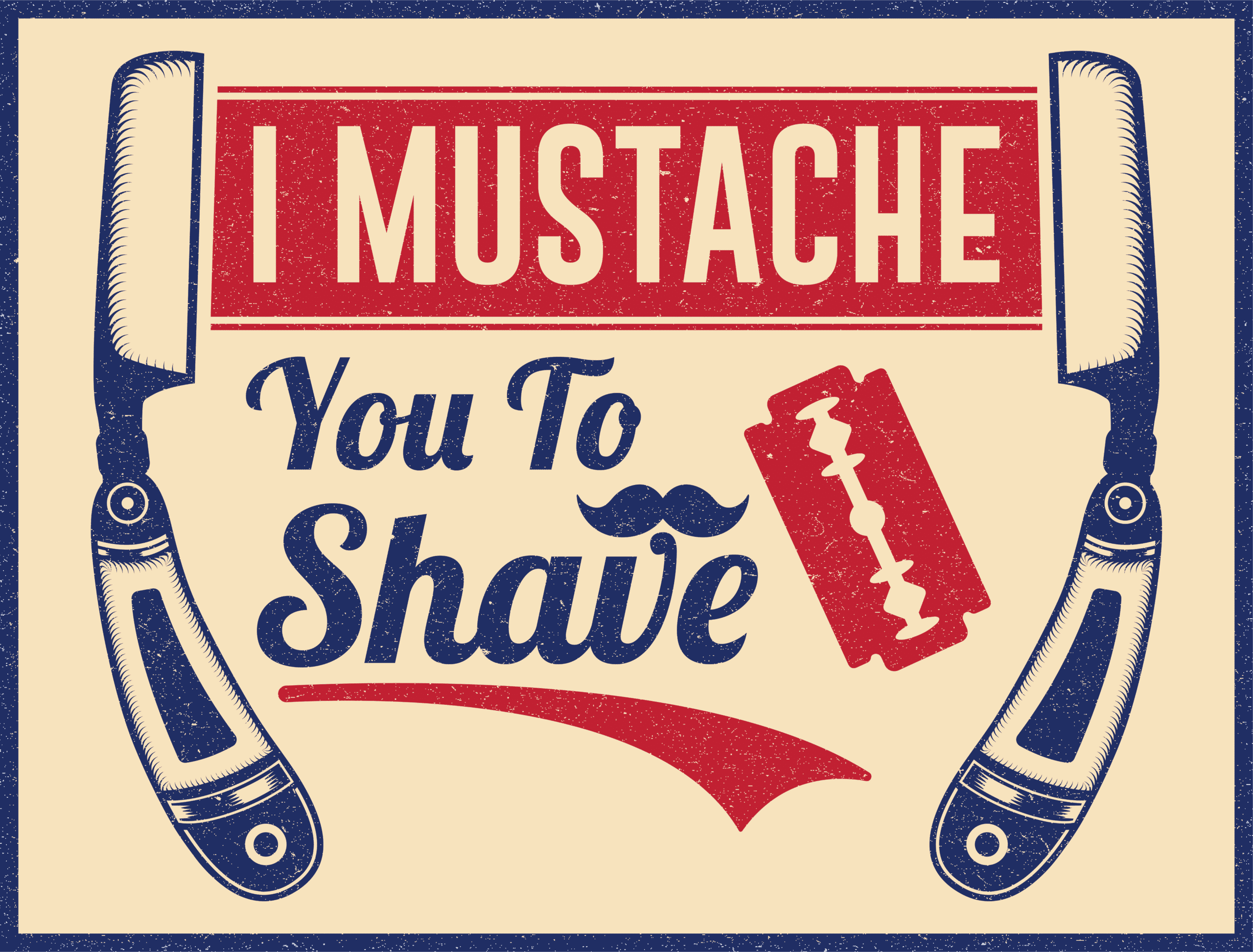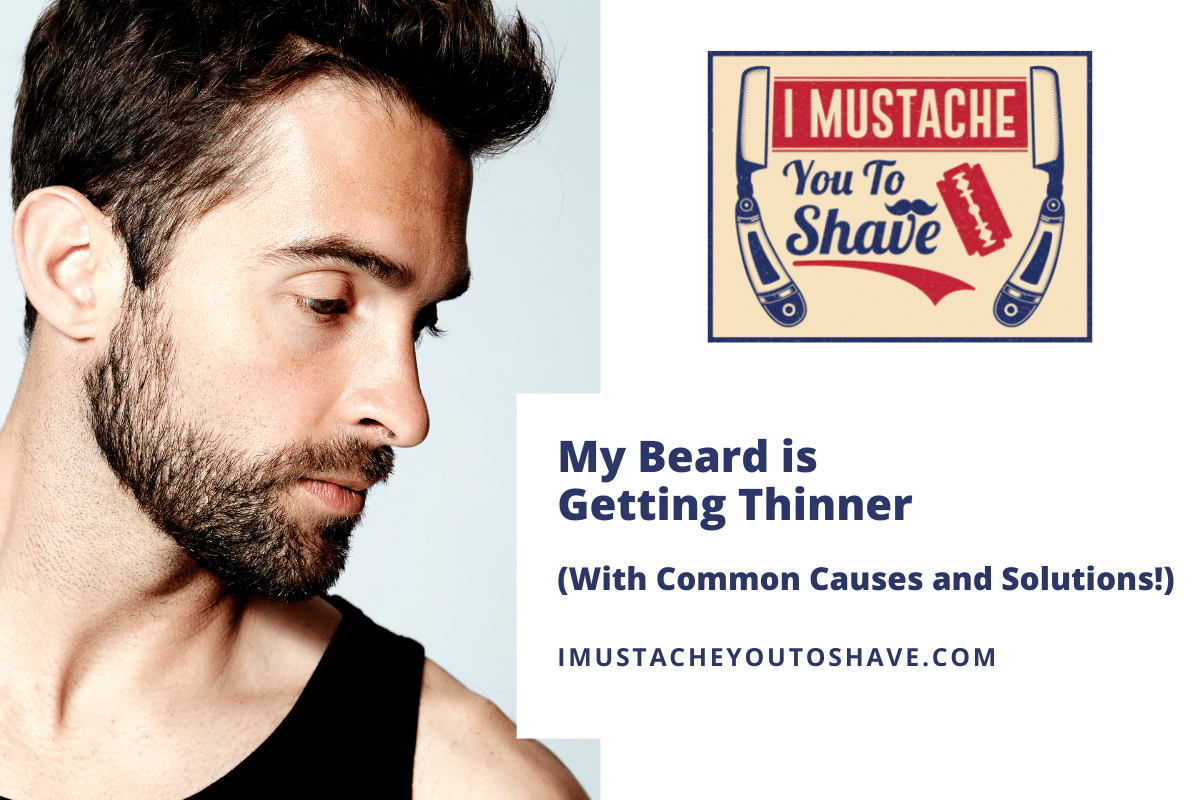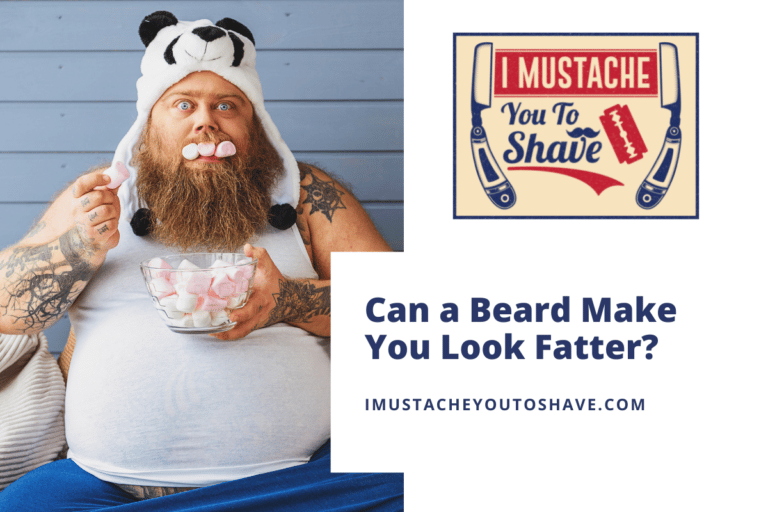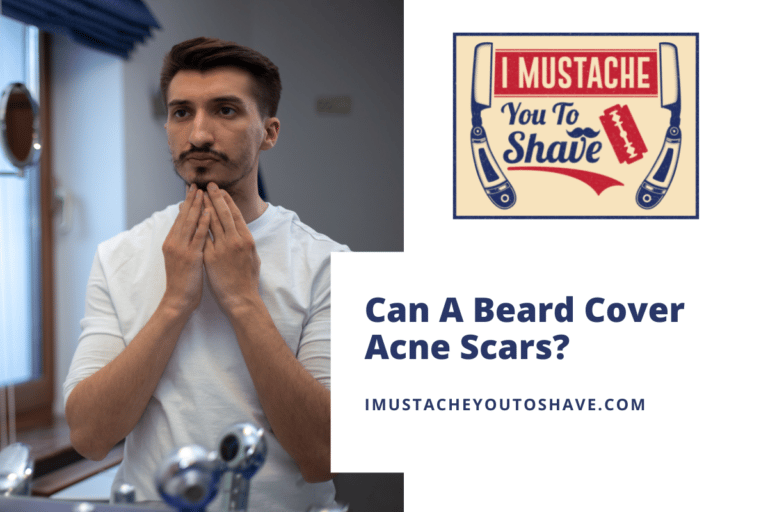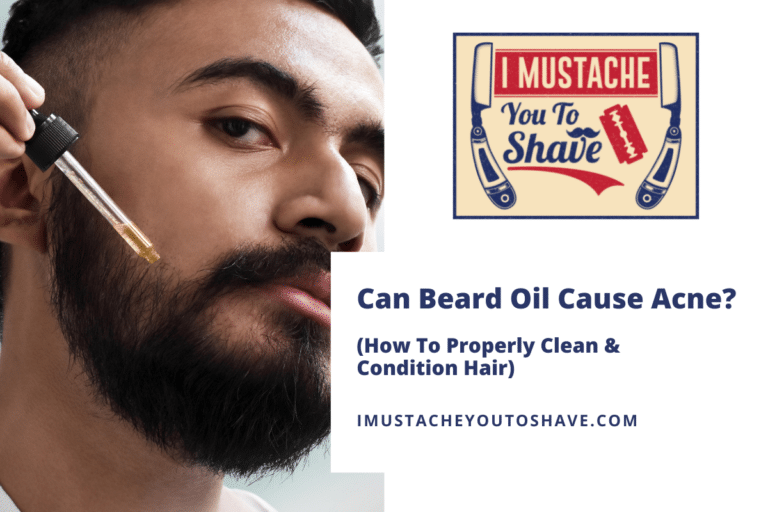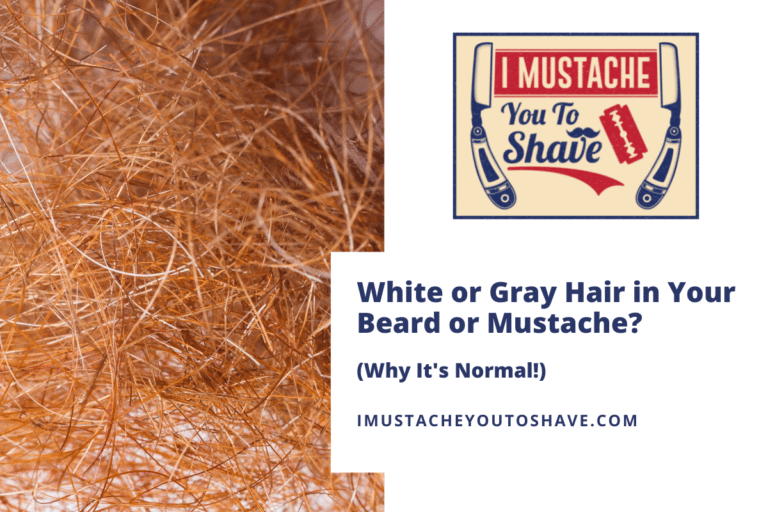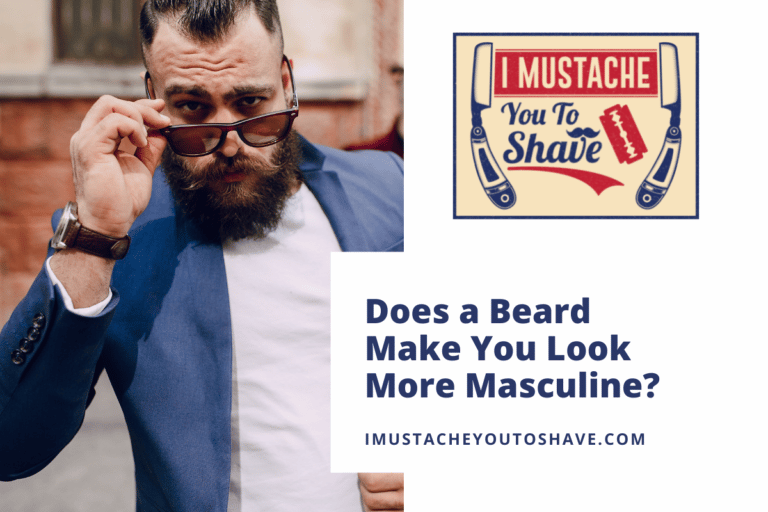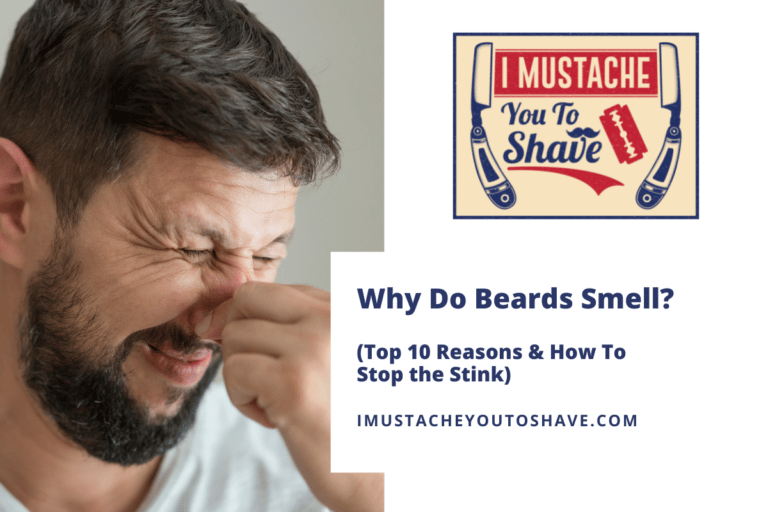My Beard is Getting Thinner (With Common Causes and Solutions!)
Lately, you’ve noticed your beard hairs have been coming out each time you finish your grooming routine. If your beard is thinning at an accelerated pace, it could be due to your grooming habits, your diet, a health condition, or chronic stress.
The reason your beard hair is getting thinner may be because you’re diet is lacking certain nutrients, you’re stressed, or you’re overgrooming it. You may also be looking at a genetic predisposition to hair loss or a medical condition. Finally, it may be the natural progression of your beard since shedding 50 to 150 beard hairs daily is normal.
Read on to learn if your beard thinning is normal, how to prevent or slow down the thinning, and what may be causing the hair loss.
Does your beard get thinner as you age?
As you and your beard mature, you may be wondering when or if your beard will start thinning out. Your beard will most likely stop growing when you’re in your mid-thirties, but it’s likely to stay at that level for many years.
Your beard thinning may be related to the foods you eat, the products you use on your beard, or most commonly, the natural aging process. Facial hair growth is driven by testosterone, so as you age and make less testosterone, your beard hair growth will slow down.
In most cases, the process takes place in small doses and you won’t notice much. It will blend in with the natural maturation process.
Although testosterone is the main factor that will determine your beard’s thickness, your genetic background, your diet, overall wellness, and stress levels will also determine when and if your beard will thin out as you age.
At what age is beard thickest?
Scientifically speaking your beard will be at its thickest from the ages of 18 to 30. Why the wide timeframe? Simple, because it all depends on your genetic background, health, and diet.
There is no set time when a beard will be at its thickest because no two beards are the same. Your beard will be the thickest when your testosterone is the highest, likely starting at the end of puberty.
Some may have a full, thick beard right out of high school, others may have to wait until their twenties, and some may not reach their full beard potential until well into their thirties.
Bottom line, your beard will grow on a timetable built just for you.
Will a thin beard fill in?
Your beard may fill in with time, but it will be based on what’s in your DNA and how you care for your beard. At some point, you’ll have to accept what you have and learn to work with what you’ve got.
If your beard is going to fill in, it may take until you’re 30 to do so. This is because your testosterone levels continue to rise from the beginning of puberty and throughout your twenties. If you have a thin beard in high school, it may be lush and full years later.
A thin beard is not the end of the world. You can use beard oils and balms to encourage growth, but your best option is to just let the stubble grow until your beard is ready to “beard.” The bare patches won’t be as noticeable when you let your facial hair grow.
Again, remember, not everyone is going to be able to grow a full, thick beard. If you’re not meant to grow facial hair, you won’t grow facial hair.
5 common reasons your beard is getting thinner
Once your beard has fully thickened, you should have several good years (even decades!) before it wanes.
Many things could cause your beard to get thinner, but some of the most common ones are:
- Diet
- Genetics
- Chronic stress
- Improper grooming
- Medical conditions
If you are concerned about the root cause of your thinning beard, you should consult a dermatologist.
Diet
A nutrient-deficient diet can cause you to lose your beard hair if your body is lacking the necessary vitamins to nourish your beard and skin.
A diet lacking B vitamins (which aid in keratin and collagen growth) can speed up the hair loss process. Your diet must also be rich in calcium, vitamin D, magnesium, and zinc, which help regulate endocrine functions.
Rigorous dieting can rob your body of the necessary nutrients needed to feed all your body’s cells (including your beard hair).
How to fix it
If you change your diet, you can greatly improve the condition of your beard. A nutrient-rich diet will lay a healthy foundation for all of your body’s necessities.
Here’s some foods you should eat to encourage beard growth:
- Spinach – Contains follicle-enriching compounds like iron, potassium, folate, and vitamin C. All of these support the development of sebum, which keeps your hair from breaking and splitting. Just 1 cup provides over 50% of the recommended daily serving of vitamin A.
- Fatty fish – Fish with Omega-3 fatty acids that help build and upkeep cell membranes. You can take your pick from sardines, mackerel, salmon, or herring.
- Chicken – a chicken breast has 200% of the recommended daily serving of L-cysteine and omega-6 fatty acids, nutrients vital for hair growth.
Genetics
Something in your DNA may make you prone to beard thinning.
If you’re wondering if your beard will become thin and sparse, look at your male relatives.
Some ethnic groups, like those of Mediterranean descent, tend to have thicker beards, while men of Asian descent tend to have less facial hair.
How to fix it
There is nothing you can do to change your genetic background. Absolutely nothing.
You can only nurture and care for the facial hair you’ve been given and move on. Every man isn’t meant to have a full beard.
Chronic stress
It goes without saying that we all know the effects of chronic, long-term stress on your health, job, relationships, and overall well-being.
Stress increases cortisol levels which can lead to you losing the hair on your head and your beard.
Stress creates high levels of cortisol which suppress testosterone and DHT. You need both for hair growth.
How to fix it
If you are experiencing hair loss you may need to take a moment to evaluate what is causing you stress.
It doesn’t matter if it’s work, family, or a combination of all of them. You’ll need to take steps to protect your well-being. Look into an exercise program to relieve some of your frustrations.
Sometimes you need to take some time to rejuvenate your mind and body by finding a way to de-stress.
Healthy mind. Healthy body. Healthy beard.
Improper grooming
Although it is a great idea to keep your beard clean, you have to ensure you are not overdoing it.
Washing your beard excessively, using the wrong kinds of products, aggressively brushing and combing, and constantly running your hands through your beard is a big no-no as it can tear out beard hairs and lead to thinning.
Using products made for your scalp hair can strip your beard of the essential and naturally occurring oils necessary to keep it healthy and hydrated. Products with too much oil can suffocate hair follicles and inhibit growth.
How to fix it
You should never use hair shampoo on your beard and also make sure you use a comb/brush specifically designed for beards.
Be mindful of your grooming routine and how you care for your beard. Remember, you want to be gentle with the hairs on your face and the delicate skin beneath.
Medical conditions
Sometimes it isn’t your diet, grooming habits, stress, or family makeup.
There are times when losing your facial hair can be a medical issue.
Hair loss in your beard(called Alopecia barbae) is often brought on by the autoimmune disease, Alopecia areata. The disease attacks the hair follicles, causing baldness. It also affects each person differently.
Individuals with autoimmune diseases like psoriasis, vitiligo, and thyroid disease are more likely to experience hair loss due to alopecia areata.
How to fix it
There is currently no cure for alopecia areata.
You will need to see a dermatologist if you are experiencing significant hair loss. A medical professional should examine you and diagnose your condition so you can find the best treatment plan.
Remember, hair loss may be a symptom of an underlying, undiagnosed condition. Seek medical advice if you are losing a lot of facial hair.
